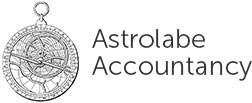Small business EOFY planning tips
 With the end of financial year nearly upon us, it’s wise to set aside some time to tie up loose ends so you can start the new financial year fresh, organised, and ready to roll. As you prioritise “must-do’s” before 1 July, consider following these EOFY planning tips.
With the end of financial year nearly upon us, it’s wise to set aside some time to tie up loose ends so you can start the new financial year fresh, organised, and ready to roll. As you prioritise “must-do’s” before 1 July, consider following these EOFY planning tips.
Connect with your clients
The end of the financial year is a natural time to reach out to your customers to check in on how they’re doing, how well your products or services are working for them, and to show your appreciation for their ongoing patronage. Some small businesses send their clients a card or email with a special offer; others make sure each of their customers receives a personal phone call. Whatever you decide, remember it’s not how you do it or how much you spend—it’s the personal touch your clients will remember.
Review your business records
Ideally, your business always keeps up to date with bookkeeping. If you’re still using an outdated record-keeping system, this is a great time to consider upgrading to cloud based accounting for the new year.
There are many cost-effective solutions out there designed for small business owners that are also STP-compliant. Solutions such as Xero will help you save time and money, allowing you to make better decisions based on accurate, real time figures.
Update your financials
In the meantime, organise any receipts that need to be entered into your financial database. Make sure your invoicing is up to date, and be sure you haven’t fallen behind with your debtors or creditors.
Consider a price increase
Once you know your numbers, you may want to give some thought to raising your rates in the new year. Take an honest look at your expenses, annual profits, as well as your personal and business financial goals. It’s generally recommended that freelancers increase rates on an annual basis as the value you bring to your work increases with experience. But really, every small business should consider doing the same. Costs go up and it’s reasonable for your pricing to reflect your expenses. Increasing rates at the beginning of a new year will make sense to your clients. They will also appreciate getting the heads up now so they aren’t surprised when new pricing goes into effect on 1 July.
Meet with your accountant
Touching base with your accountant before the year closes is a smart move for your small business. That way, you can go over your goals for the new year, do some business planning, looking at how much capital you may need to meet your goals, and whether a change to your business structure would be worthwhile. Your accountant can also offer helpful tax planning advice; for instance, she can provide an estimate of your tax payments for the current year, and point out tax-saving opportunities—such as a purchase that would benefit your business and save on taxes if made before 30 June.
EOFY planning tips for deferring tax
Delay receipts
If you account for your income on the cash basis, you can defer income simply by deferring receipt of your income. One way to do this is to delay invoicing your customers. However, you cannot defer income by not banking cash or cheques you have received.
Defer unearned income
If you account for income on the accrual basis and receive payment for work before you have carried it out, you can defer that income until you have actually earned it. Your business records would need to be able to identify this unearned income.
Prepay expenses
Your business is a Small Business Entity (“SBE”) if it has a group turnover of less than $10 million per year. This entitles you to claim a deduction for expenses paid up to twelve months in advance. For example, you can claim for lease, rent and insurance payments made for up to twelve months ahead.
If your business is not an SBE, you may generally only claim deductions for prepayments under $1,000.
Bring forward expenditure
If you know that you will need to incur expenses in the new financial year, such as repairs and maintenance, consider bringing them forward to the current year. You cannot accrue employee super contributions, so pay super guarantee contributions before 30 June. As the funds have to actually reach the employees’ superannuation accounts by 30 June, make payment at least a week before the end of June.
You can also stock up on consumable supplies before the end of June. Examples of these include stationery, spare parts, lubricants, fertiliser and bulk fuel. If you do not keep more than about three months’ worth of supplies you can claim the expense in the year of purchase.
Purchase needed vehicles or equipment
Under the Coronavirus Economic Response Package, most businesses can claim an immediate tax-deduction for assets costing up to $150,000 purchased from 2 March 2020 until 30 June 2020. Note that this is only an advantage if you actually need the additional equipment, and your taxable income is great enough to benefit from this tax deduction.
Accrued expenses
You may claim a deduction for an expense in the year in which the liability to pay the expense arose. An employer’s liability to pay salaries and wages accrues on a daily basis as the employees perform each day’s work. This means that you can claim a deduction for salaries, wages and commissions that have accrued but which you have not paid by the end of the year. Note that wages and salaries are only taxable to the employees when they receive the payments.
You can also accrue directors’ fees and staff bonuses as long as you are definitely committed to the payment. This would require you (the shareholders, partners or trustee) to record a resolution to this effect before 30 June. However, if the payments are not made within a reasonable time the Tax Office may regard this as a sham.
Bad debts
You can claim a tax deduction for irrecoverable debts in the year that you actually write the debt off as bad. Review your outstanding debtors now before 30 June and write off those that you think will never pay you.
Scrap useless assets
Review your asset schedule and get rid of business assets that you no longer use. The remaining book value may be claimed as a tax deduction. This does not apply to assets that are pooled or written off in full, so this strategy will not help businesses that use the SBE depreciation rules. Of course any business may benefit from having more space after getting rid of clutter!
Trading Stock
All trading businesses have to value their trading stock at the end of the tax year. You need to keep the records of the stock count to comply with your tax record keeping obligations. You may value each item of trading stock at cost price, replacement cost or market value. The cost of manufacturing goods must include not only materials and labour but also a proportion of factory overheads.
You may value obsolete and obsolescent stock at less than cost price. If you are going to dump unsaleable stock you can value it at scrap value or at zero value. You may value stock that is becoming obsolete at a fair and reasonable value considering the likelihood of selling it. The Tax Office will not accept an arbitrary percentage write-down.
If your business is an SBE you are not required to count stock if your estimated value of that stock is within $5,000 of the previous year’s stock value. However if you do choose to value trading stock, you must do this in terms of the normal rules. You cannot use your estimate for tax purposes.
Log Books and Odometer Readings
Partnerships and sole proprietors have to comply with the car substantiation rules. If you have business cars you may be able to maximise your tax deductions by keeping a valid logbook. A valid logbook is one kept for 12 weeks showing details of all business trips. You can use a valid logbook to estimate business use for the next four years as long as you record odometer readings every 30 June.
If there is no valid logbook the only option for claiming car expenses is to claim 68 cents per kilometre. This is limited to a maximum of 5000 km (a maximum deduction of $3,400).
Distribute Profits
The profits of companies and trusts must be distributed to their shareholders and beneficiaries for them to benefit. Make a director’s or trustee’s resolution before 30 June to pay dividends to shareholders or allocate trust income to beneficiaries.
Trusts
The income of a discretionary trust must be distributed according to the trust deed if you do not make a resolution by the end of the financial year. This could mean that the income goes to the wrong beneficiaries, or the trustee may be taxed at 47%!
Trustees must report Tax File Numbers of beneficiaries receiving distributions or withhold 47% tax. Note that minor children can only receive $416 of interest and trust distributions before having to pay punitive levels of tax.
Companies
If you borrow money from your company, repay the loan before the end of June to avoid tax implications. Division 7A of the tax law treats outstanding loans to shareholders or their associates as taxable, unfranked dividends. If this applies to you give us a call; there are exceptions that may apply.
Partnerships
In a partnership partners can agree to pay partners’ salaries to the partners doing the bulk of the work. You should make this agreement at the beginning of the financial year. However an agreement made before 30 June may be acceptable. Note that partners’ salaries represent a distribution of partnership profits, and are not an expense to the partnership.
Consider Super Contributions
Consider whether to make additional superannuation contributions. This could be a deductible expense to your company or trust. If you are a sole trader or partner you may be able to claim a personal deduction. If your income is low you may qualify for the government co-contribution.
It is best to take advice before making contributions. Take care that your contributions from all sources do not exceed the contribution limits. The ATO will impose penalty tax on the excess. This financial year the maximum deductible contribution is $25,000 for all taxpayers.
Contributions for taxpayers earning over $250,000 will be taxed at 30% not 15% within their super funds. If you have a trust it is better to keep the total of your taxable income plus deductible superannuation contributions below $300,000, and let your trustee pay tax on the additional income.
EOFY planning tips
With these EOFY planning tips in mind, you can take action and enjoy a great start to the year ahead. Best of all, checking all those important “must-do’s” off your list, you’ll be ready to relax and face the new financial year with confidence.
